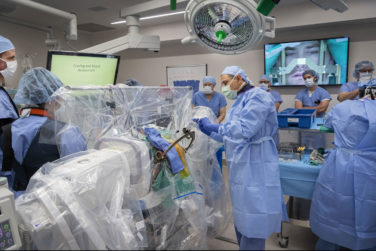
FINE TIME
Two top pharma companies agreed to pay the U.S. government to resolve criminal and civil claims related to former marketing practices. In the biggest such settlement to date, GlaxoSmithKline agreed to pay $3 billion to resolve suits and investigations arising from its marketing and pricing of the antidiabetic Avandia. The agreement will not be final until formally approved, probably in 2012. And Merck Sharp & Dohme agreed to pay $950 million to lay to rest the legal actions over its promotion and marketing of the painkiller Vioxx (rofecoxib). Both companies had reported the actions earlier and had reserved funds for the settlements.
VERY ADVERSE EVENTS
Researchers at the Centers for Disease Control and Prevention and Emory University Medical School estimate that adverse drug reactions, usually caused by unintentional overdoses, send older Americans to the hospital nearly 100,000 times a year. Based on their analysis of 5,077 cases involving patients 65 and older, Daniel S. Budnitz and colleagues implicate just four medications (warfarin, insulins, oral anti-platelet agents, and oral hypoglycemic agents) in 67% of the hospitalizations. (N Engl J Med 2011; 365:2002-2012)
PBMS ATTACK COPAYS
In a broad public relations effort, the Pharmaceutical Care Management Association (PCMA, a national association of pharmacy benefit managers) is promoting the results of a Visante study, “How Copay Coupons Could Raise Prescription Drug Costs by $32 Billion over the Next Decade” in a state-by-state series of press releases. The campaign quotes PCMA President and CEO Mark Merritt: “Copay coupons are designed to undermine generics, increase sales of more expensive brands and stick employers with the tab.” The study says that, if a Medicare ban is not imposed, “costs to the Part D program would increase by $18 billion over the next decade.” Read the report at tinyurl.com/6dnlus6.
PRO-IMMUNIZATION CAMPAIGN
Responding to the rising tide of opposition to childhood vaccinations, Sanofi Pasteur has unveiled its ImmYounity campaign, an effort to provide “consumer-friendly, accurate and science-based information about immunization” to answer worried parents’ questions (and give providers help in answering those questions, too). The Web site, www.vaccines.com, offers “useful facts and resources, including visuals that can be easily shared via social media and email and is supplemented by educational brochures offered for use by healthcare providers.”
CRM WORKBOOK
Seattle’s Appature (a provider of relationship marketing software) has issued a free, 78-page pdf workbook, The Roadmap to Relationship Marketing” (tinyurl.com/ 7ycmxx6), which aims to guide healthcare marketers in constructing “solid, sustainable relationships with their most valuable customers.”
PEER REVIEW INSTITUTE ALLIES WITH TOBAR
The Peer Review Institute (PRI) and consultants Tobar, LLC formed a strategic partnership to extend PRI’s reach into the pharmaceutical, biotech and medical device industries. PRI offers clients “independent review of their promotional initiatives” to substantiate scientific claims and meet concerns of regulatory agencies, physicians, and scientific journals about the accuracy and objectivity of manufacturer- initiated information.
Pharma’s ‘Carbon Ranking’
The Environmental Investment Organization (www.eio.org.uk) released its “ET Carbon Ranking,” listing the greenhouse-gas emission levels (and organizational transparency on environmental issues) of 800 companies worldwide. Here is how some prominent healthcare organizations (smoke-) stack up in the list: 1–Baxter Intl; 13–Bristol Myers Squibb; 16–Abbott Laboratories; 43–Wellpoint; 44–Cigna; 56–Biogen Idec; 62–Amgen; 84–Johnson & Johnson; 85–St. Jude Medical; 86–Allergan; 89–Becton Dickinson; 129–Covidien; 130–Medtronic; 131–Eli Lilly; 132–Merck & Co; 133–Pfizer.
COUNTER-COUNTERFEITING
The National Intellectual Property Rights Coordination Center (IPRC, www.iprcenter.gov, part of the Department of Homeland Security) issued “Intellectual Property Rights Violations: A Report on Threats to United States Interests at Home and Abroad.” The 108-page analysis concludes that counterfeiting of pharmaceuticals (along with aircraft parts and other categories) presents a significant risk to the U.S. Much of the faux-pharma stems from China, India, Russia, and the tri-border area of South America. According to IPRC, “IP theft negatively affects the economic well-being of United States rights holders through lost profits, brand dilution, and enforcement costs, and the United States’ economic well-being through job and tax revenue losses. Some counterfeits, such as pharmaceuticals and aircraft and automotive parts, pose threats to the public’s health and safety.” In addition, some of the profits support terrorism as well as organized crime. Read the report at tinyurl.com/74en2yt.
STOP-SALE SYSTEM PROTECTS LEGAL ACCESS
A demonstration project in Alabama is showing that a real-time stop-sale system can interdict illegal sales of medications containing pseudoephedrine (PSE). “The compelling data from Alabama demonstrates that real-time, stop-sale technology is blocking illegal sales, while allowing law-abiding citizens to access popular and reliable medications to manage common colds and allergies,” said Charles F. Cichon, executive director of the National Association of Drug Diversion Investigators (NADDI). “In the last year alone, [the program] has blocked the sale of nearly 79,000 boxes of products containing pseudoephedrine from being sold in Alabama for a total of more than 185,000 grams being kept off the street. We believe employing electronic technology in Alabama is proving to be very effective as it is blocking illegal sales, while allowing legal ones to families and workers.” During the demonstration period, meth lab incidents in Alabama dropped by 74%.
MYLAN BUYS PFIZER RESPIRATORY PLATFORM
Mylan announced that it had agreed to buy Pfizer’s rights to its generic versions of GSK’s Advair Diskus and Seretide Diskus products, including a proprietary dry powder inhaler delivery platform. The products are inhaled fixed-dose, dry-powder combinations of fluticasone propionate and salmeterol for treating asthma and COPD. Mylan also acquires the rights to use the dry-powder technology for other products.





